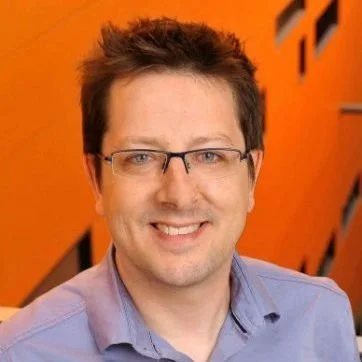Frederick Leblond, PHD
Frederick Leblond, PHD
Founder & CSIO
A major part of Professor Leblond’s work is in perfecting of powerful optical needle biopsy instruments. A prototype that relies on interstitial optical tomography can guide surgeons by detecting blood vessels during procedures. The primary goal is to improve safety and effectiveness when examining tumours in the brain. The better physicians can understand a tumour by collecting as superior sample, the greater the odds of successful treatment.
In further research in the service of patients, Professor Leblond made a major breakthrough, along with colleagues Dr. Kevin Petrecca and Dr. Marie-Christine Guiot of McGill University, providing surgical teams with a powerful cancer-cell detection method: a Raman spectroscopy probe that they can use in real time to better differentiate cancer cells from healthy cells. The malignant cells can then be properly removed, preventing the cancer from spreading to healthy regions of the brain.
Another technique developed in the Optical Radiology Laboratory is quantitative fluorescence guidance for surgeons, which relies on spectroscopic imaging corrected by means of fluorescent markers. This technique also gives surgeons certain information about a tumour they are operating on (such as its depth). The system is connected to a surgical microscope.
A further tool developed by Professor Leblond for eventual use in operating rooms is a hyperspectral imaging system for assessment of brain hemodynamic. Connected to a surgical microscope, it enables locating of epileptic foci, among other things
From the lab to the operating theatre
Collaboration with oncologists is now a reality. Professor Leblond’s instruments are being tested in hospital settings, thanks in part to an industry partnership.
Lastly, in collaboration with another department professor, Thomas Gervais, Professor Leblond is also working on lab-on-a-chip devices for in-vitro study of anti-tumour drug efficacy, in the hope that they can be brought into widespread use. These devices will also make it possible to test a treatment before its commercialization and predict patient responses (another step on the road to personalized medicine).
ENTREPRENEURIAL FIBRE
Frédéric Leblond is the co-founder and Technical Director of ODS Medical Inc., which is tasked with commercialization of his Raman-spectroscopy-based cancer-cell detection device. He is currently working with a number of industrial partners on development of several medical imaging techniques, probes, and software. He also holds several patents. As his work also involves human subjects and is greatly useful to medical personnel, he has collaborative projects with many hospitals across North America.

